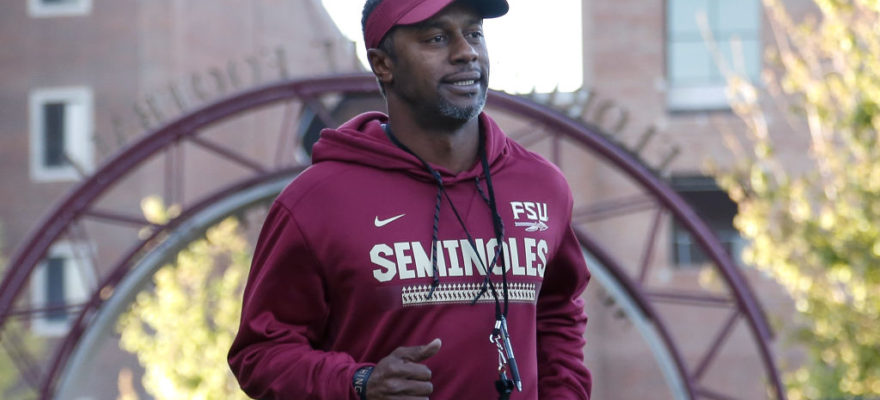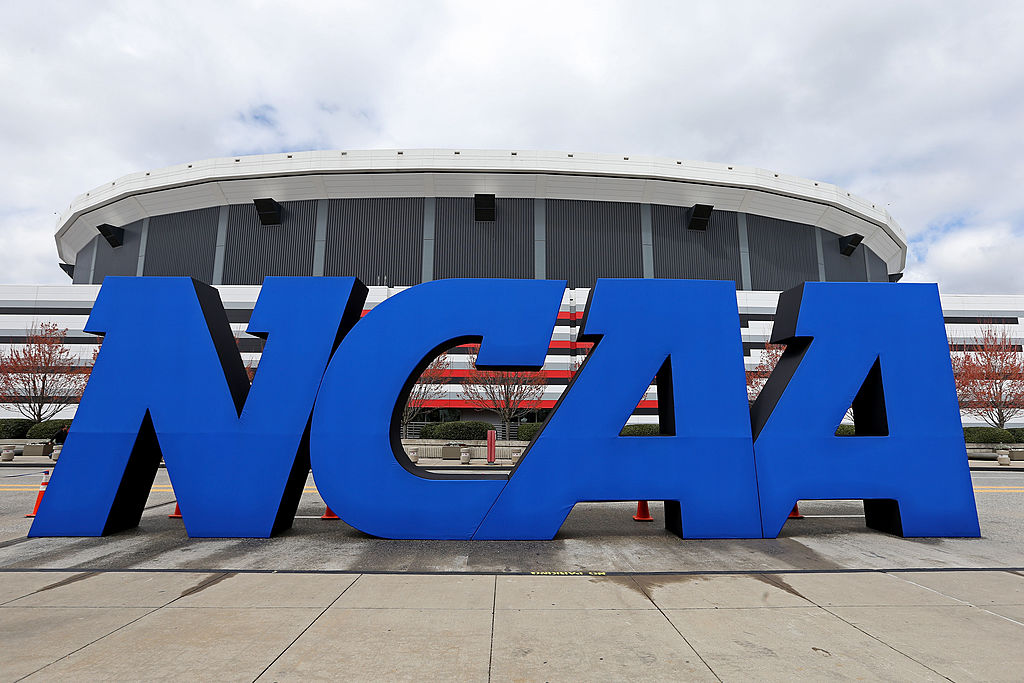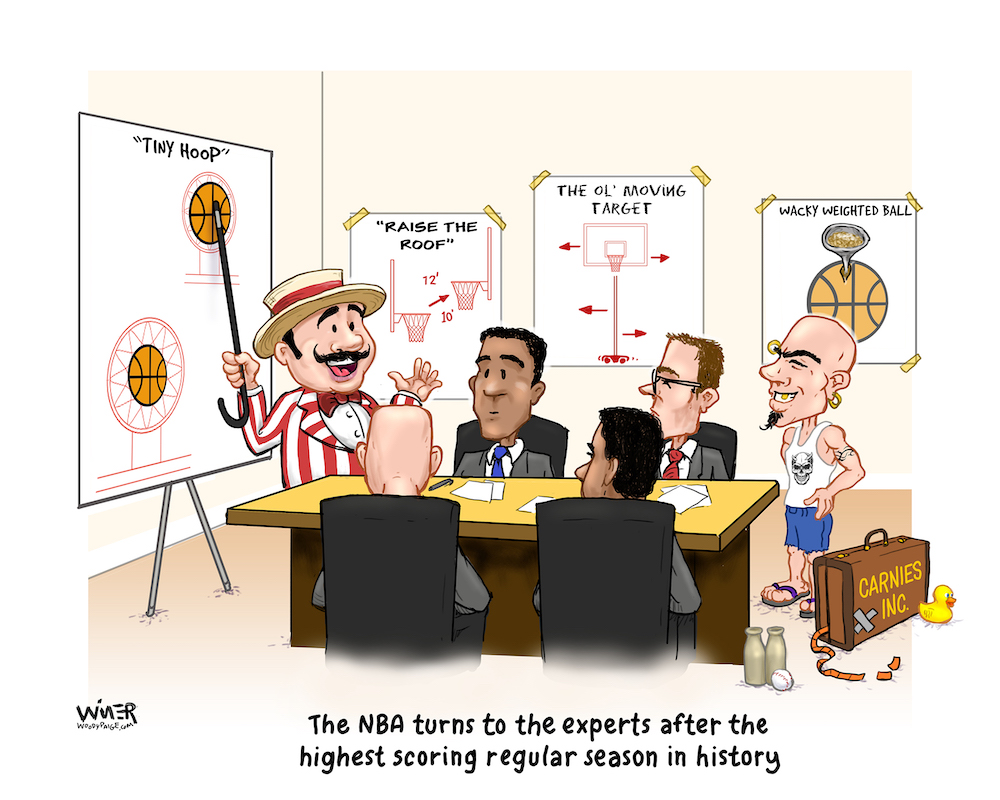Willie Taggart’s buyout at Florida State is about $18 million.
It’s madness.
The biggest obscenity about college football coaching salaries is not how much the head coaches make on the job. The going rates are established. The financial impact of success is undeniable.
The physics professor is not going to be wearing five national championship rings on a supplemental insurance company commercial.
Nick Saban is.
I get that.
It’s the buyouts, especially when it involves coaches who haven’t yet had a chance to put their full imprints on programs or recruit through a full cycle.
College head coaches not only get paid a ridiculous amount of money, it’s what they get if and when they’re deemed no longer capable of doing the job. And that can happen stunningly quickly, such as when Taggart last Sunday was fired during his second season at Florida State.
Also in his second season at Arkansas, Razorbacks coach Chad Morris is under fire and if fired after this season, would be owed roughly $9.8 million.
It amounts to having buyouts or guaranteed money that makes them seemingly invulnerable to being fired, at least early in the contract. It’s as if those clauses are thrown with a dismissive, “Aw, that’s not going to be needed, anyway.”
Taggart’s $18 million buyout might be negotiated down. Coaches sometimes take lump settlements, often in exchange for not having future earnings in new jobs offset the buyouts.
The Seminoles were 4-5 in the ACC and 9-12 overall under Taggart, who bailed out on Oregon after one season to take his “dream job” at FSU.
It became a nightmare.
I’ve read all the reasons FSU “had” to do this. It’s all very familiar:
- FSU couldn’t afford not to do it.
- Too many no-shows, signs that season-ticket renewals would be a problem, and indications that booster contributions would be affected.
- Slipping morale within the program and a financially strapped athletic department.
- And certainly, not enough wins as the spiral that began in Jimbo Fisher’s last season continued.
This is not going to be a “defense” of Taggart, who seemingly had proven himself in FSU’s backyard as the successful coach at South Florida. With the salaries and the magnitude of the buyouts, both for coaches just taking over programs or those rewarded with extensions following early success, I long ago ceased having “sympathy” for ousted coaches. I started to list examples of buyouts for fired coaches in recent years, but I only have so much space. They know what they got into and they come out of the experience enriched. The buyout money usually is touted as coming from outside sources – i.e., boosters – but it still amounts to shifting money from one pocket to another.
It’s tricky at FSU because the athletic director who essentially hired Taggart, Stan Wilcox, left to work for the NCAA. He also didn’t hire a search firm to help in the process that lured Taggart away from Eugene. The AD doing the firing, David Coburn, didn’t have his own reputation linked to Taggart.
So this part doesn’t apply to FSU and Taggart: If a search firm brought a coach, vetted, to the table, was involved in the initial contacts, and made anything close to a recommendation to hire a coach quickly deemed to be a mistake, it should be persona non grata for other schools. You can’t even say, well, that didn’t work out, it’s time to move on. You have to say: That was a multi-million-dollar mistake.
Otherwise, bite the bullet, at least until a new coach has been able to place his imprint on a program, in terms of recruiting, in the locker room and strategically on the field. If there were some way the NCAA could get away with limiting buyouts, I’d be for it. But it isn’t happening.
Now that early firings are more commonplace, the talk can become self-fulfilling prophecy.
This is not a contradiction. These buyouts are ridiculous if implemented. Yet if the buyouts discourage making changes too quickly in a coach’s tenure, I’m OK with that.
Yet how can second-year coaches, such as Taggart and Morris, come under so much fire … so soon? Especially given the staggering buyouts?
Question: What do you so often hear when new coaches win?
Aw, he’s winning with the previous coach’s players.
Before someone else points it out, Dan Mullen is getting tons of credit in his second year at Florida after taking over for Jim McElwain.
If coaches aren’t allowed to stay through a full five-year recruiting cycle – assuming many or most freshmen redshirt – they never have their fate in their own hands. That seems to especially apply to Morris, the spread offense proponent who stylistically overhauled the Razorbacks after replacing Bret Bielema.
It encourages patchwork fixes rather than patience. Especially as the new era approaches of allowing players to profit from their name, image and likeness, there are more ethical corners that can be cut. Don’t think so? How about a coach promising an elite prospect that the booster car dealer will guarantee $100,000 for signing autographs at the dealership?
Still, those are nice jobs if you can get them. Buyouts and all.
About Terry: Terry Frei is the author of seven books. His novels are Olympic Affair and The Witch’s Season, and among his five non-fiction works are Horns, Hogs, and Nixon Coming, Third Down and a War to Go, and ’77: Denver, the Broncos, and a Coming of Age. Information is available on his web site, terryfrei.com. His woodypaige.com archive can be found here.


















I’m amazed, I have to admit. Rarely do I encounter a blog that’s
both equally educative and entertaining, and without a doubt, you’ve
hit the nail on the head. The problem is something
too few folks are speaking intelligently about. Now i’m very happy I came across this in my
hunt for something regarding this. http://www.fourkrestaurant.com/